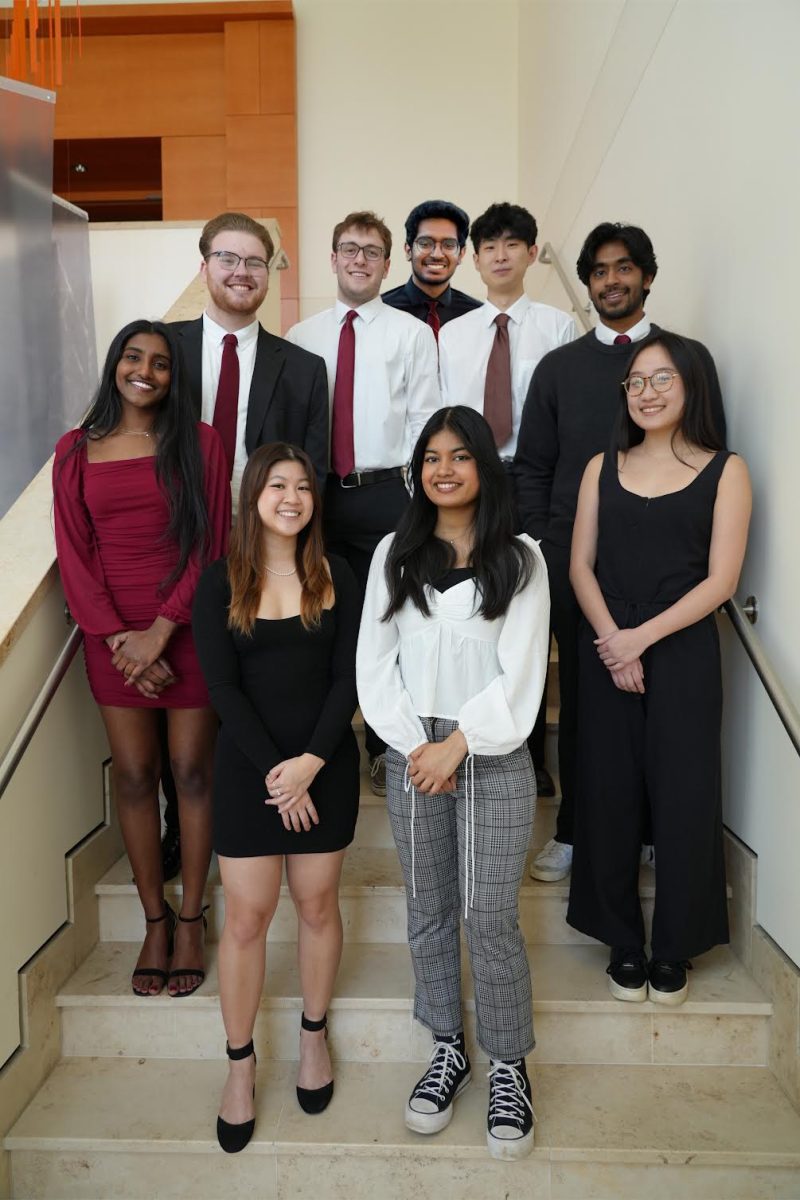T
Click here to view a list of payments made to University doctors.
Click here to view a list of payments made to all doctors in Minnesota.
(Microsoft Excel Files)
 he fervor over conflicts of interest at the University’s medical school has come and gone since two professors were accused of “double-dipping” in April.
he fervor over conflicts of interest at the University’s medical school has come and gone since two professors were accused of “double-dipping” in April.
But the school still lacks policies to prevent conflicts of interest of a different kind that may arise when doctors receive money from various drug and medical device companies, according to a report released last week by the American Medical Student Association .
The University’s medical school received a “D” from the association. The report listed the fact that most, but not all, financial relationships require a review by a school committee as one of the reasons for the low score.
Still, the problem may run deeper than a lack of policies. The University and its medical faculty received nearly $1.5 million from drug companies between 2002 and 2004, according to the most recent data available from Public Citizen , a consumer rights advocacy group.
The AMSA report follows another released by the more influential Association of American Medical Colleges that recommended schools prohibit the acceptance of any gifts from the medical industry.
The problem also extends beyond Minnesota, according to AMSA. More than half of the medical schools surveyed earned lower than a “C,” while just 5 percent earned an “A.”
Not included in the Public Citizen data is one University spine surgeon who received more than $250,000 from Medtronic in 2003. The payments came at the front end of a U.S. Justice Department investigation of the Minnesota-based medical device company.
The investigation ended with Medtronic paying a $40 million settlement.
Another surgeon received more than $450,000 in the three-year period from drug companies, and one former surgeon received nearly $400,000, including $233,000 for a clinical study with an additional $142,000 in “study payments” from the same company, according to the data.
Many of the payments come from clinical studies and speaker or consulting fees. But one surgeon billed drug companies for nearly $14,000 in travel and “incidental” or “other expenses.”
Not limited to faculty, the University as an institution received more than $700,000 from drug companies, with $238,000 tied to clinical studies and research.
Minnesota has one of the tougher laws in the country against medical professionals receiving money from drug companies. It prohibits gifts intended to provide incentive for continued use of a product.
But who’s to say which gifts fall under that category?
That’s precisely the problem, said Sen. John Marty, DFL-Roseville, chairman of the Health, Housing and Family Security committee .
“Psychology 101 teaches you when somebody gives you something, even if it’s not something you wanted, even if it’s not a big deal, it does change your mind-set,” he said.
Marty introduced legislation last session to ban gifts to doctors from drug companies all together. He said the practice signifies an “absolute” conflict of interest, not a potential one, and that disclosure is not enough.
“We want to make sure the medical profession is looking out for the best interests of the patient,” he said, “not the best interests of the drug company.”
To address these concerns, University medical school officials convened a conflict of interest committee last fall intended to update the institution’s policies, co-chairman of the group Dr. Leo Furcht said.
“Many of us in the school recognized that we really needed to address this matter,” he said. “There is significant concern on everybody’s part.”
Still, Furcht said the relationships can be advantageous to patients because some research facilities lack the ability to turn discoveries into treatments.
“There’s a necessary relationship that advances new technologies and therapies,” he said. “We want to make sure that has primacy and there aren’t inappropriate activities.”
The committee has discussed the possibility of banning all gifts, Furcht said, but the main goal is to be more transparent and to evaluate gifts based on a “fair-market standard” to weed out inconsistencies.
But some would like to see the University heed the AAMC report and ban all gifts, like third-year medical student Josh Lackner , a former co-president of AMSA Minnesota chapter and member of the University’s conflict of interest committee.
Treatment plans, prescriptions and the devices used are the “meat and potatoes of medicine,” Lackner said, and shouldn’t be influenced by financial ties.
“There’s a lot of money from pharmaceutical companies that goes to professors, that’s for sure,” he said. “We know it influences behavior in a way that has nothing to do with providing objective, science-based medical care.”
While potential University policy changes remain unclear, when the AAMC makes a recommendation, medical schools typically follow it, Susan Ehringhaus , associate general counsel for regulatory affairs in the association’s biomedical and health sciences research division, said.
Despite the debate, ultimately, the AMSA report card shows schools have a lot of work to do, Nitin Roper , who is leading the AMSA’s PharmFREE movement, said.
The hope, Roper said, is if accepting gifts can be stopped at medical schools, it can prevent conflicts of interest in the future.
“Medical schools are the location in which physicians are grown and developed,” he said. “If you can change the system in the medical school, then hopefully later on the problem will be solved.”










